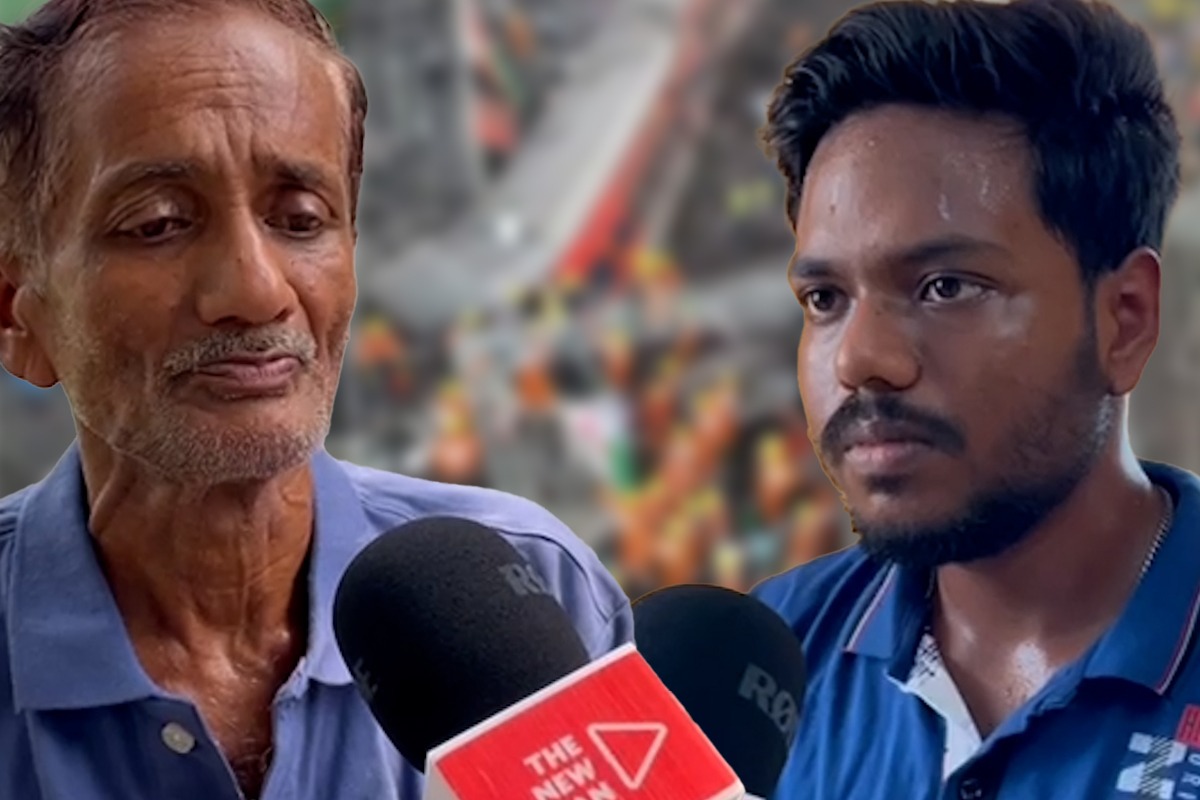KOLKATA: Binoy Mandal, a nervous and grief-stricken father, grapples with an agonizing dilemma in the aftermath of Balasore train tragedy. As his young son, Subir, contemplates returning to Chennai for work from Kolkata onboard the ill-fated Coromandel express, Binoy’s heart breaks with fear and uncertainty.
“The next train he is scheduled to take is the Coromandel Express. As a father, I don’t know what to say. I am terrified. Once he steps onto that train, the memories will come flooding back. I will be helpless until my son reaches Chennai for work. His office has given him an ultimatum to join back. May God protect him,” he tells The New Indian, his eyes welling up with tears.
ALSO READ: WATCH: Balasore victim slams CM Mamata over delayed compensation
On the fateful evening of June 2, tragedy struck as the overspeeding Coromandel Express derailed at the Bahanaga Bazar railway station in Balasore district, Odisha. This horrific incident, which occurred approximately 300 km away from Kolkata, involved a collision with two other trains. Subir, Binoy’s only son all set to join back work in Chennai, was one of the passengers.
ALSO READ: INTERVIEW – We saved 44 lives by cutting mangled bogies in Balasore: NDRF chief
“We dropped him off at the station and stayed there until the train departed. We spoke intermittently, and suddenly, my son called to inform me that the train had met with an accident. The network connection was immediately lost. We were desperate to hear from him,” Binoy tells, his voice filled with anxiety and fear.
Recalling the horrific events, Subir Mandal shared, “I couldn’t fully comprehend what was happening. All I could hear were the dreadful screams of people crying out for help. I clung onto a rod with all my strength until our coach came to a stop. Suddenly, our coach tilted sharply, throwing all the passengers to one side. The window beside us shattered, and shards of glass fell upon us. Somehow, we managed to break the remaining sharp pieces and crawl out of the train. The scene was indescribable. We were in shock, unable to cry or speak.”
Despite the trauma, Subir explained that he has to return to Chennai for work, with his journey scheduled for June 17. “I am scared, but what else can I do? I have to do this for the sake of my job,” he said, a mix of apprehension and determination in his voice.
ALSO READ: Balasore train tragedy: How this ex-army man saved 28 lives
He also praised the Mamata government for promptly helping with Rs 10,000 to take care of his treatment.
The survivors of the Balasore train accident continue to grapple with the aftermath, haunted by their experiences and uncertain about the future. The tragedy serves as a reminder of the profound impact such incidents have on individuals and their families, leaving scars that may never fully heal.
ALSO READ: Balasore train accident: Odisha GRP say ‘death by negligence’ in FIR
According to Odisha’s chief secretary, Pradeep Kumar Jena, the revised death toll was determined through a thorough process involving the verification of bodies, the unfortunate demise of severely injured patients, and updates received from district collectors. The final death toll stands at 288.
On Friday, a few minutes before 7 pm, a devastating incident occurred at Bahanaga Bazar station when the Coromandel Express collided with a stationary goods train loaded with iron ore. The impact caused some of the coaches to derail and collide with the Yeshwantpur-Howrah Express. This tragic event stands as India’s most severe railway disaster in the past thirty years, resulting in 1,100 individuals sustaining injuries.
You May Also Like:

















